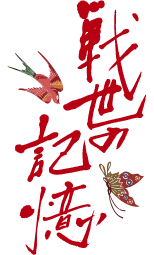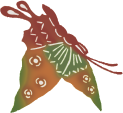
“Experiences of the battles in Kumejima and Iejima as a civilian war worker”
“Experiences of the battles in Kumejima and Iejima as a civilian war worker”
Seitoku Nakasone, 91 years old
(Place of birth: Nakachi, Kumejima Village, Okinawa Prefecture)
As rendering good service to the Emperor was a matter of course due to the education given then, I was ordered to take a physical exam for conscription on main island Okinawa and join a corps immediately to prepare for the coming fight in the Okinawa Battles. That was the reason why I was not allowed to go back to Kumejima Island, but I took a ship at night and finally came back to Kumejima Island.
It was the physical exams after the 10/10 air raid. The men who were older than me by one year were taking the exam with those who were two years older than me. It means that they took the exam when they were 18 years old although the legally eligible age for the exam was 20 years old. Although there were many young men in Kumajima Island who took the exam early or who were directly drafted, they all were left on Kumejima Island because all the ships we had were destroyed and sunk by the air raid. Therefore, we didn’t have any ships left. Most of the young men who were one year older than me were drafted by then.
During the air raid onKumejima Island, the Americans fired at the road by my house, near the Yamashiro’ house. Since it was built with a straw-thatched roof, their house caught on fire.
(Living circumstances then)
Purchasing goods with other goods as if we were living in a barter economy was the only way to survive. We were in the situation where we ate only to keep ourselves alive.
When the American Forces landed, I was so scared. One day, when my father and I were on our way to our rice fields, with a horse and a mokko (a basket-like container to carry things) containing fertilizer for our rice seedlings to prepare for double-cropping, we saw several American soldiers coming toward us. We hid at the eastside of the nearby mountain. Although we knew all the roads on the island like the backs of our hands in order to escape from attacks, since we did not have time to unload the fertilizer we tethered the horse to the limb of a tree and left the fertilizer on the horse’s back. The Americans soldiers started firing at us. I heard five or six soldiers shooting at us. I stayed hidden in the shadow of trees and in a bush. A few hours later, I came out of the mountain and realized that my father was taken away by them.
The Americans captured all young men to distinguish them between soldiers and civilians and the soldiers were sorted out of the civilians after the inspection in the school yard of the current Otake Elementary School.
(Our duty on the island)
It was our duty to stand by in the military housing as the messengers to notify the people of a coming air raid. We stood by to alarm the people in Nakandakari when an order was issued to us so that all people on the island would eventually be warned.
(Japanese Army)
We had to do whatever the Japanese Army wanted us to do because, if not, we would have been given a hard time. We had to absolutely obey the Japanese Army. All the tobacco plants we were growing were collected by the Japanese soldiers. They not only ordered us to give them some of our pork, but also forced us to carry the pork over to them.
Upon an air raid, I once was chased around by an American airplane. When I hid myself behind something, the plane flew around to attack me from the opposite direction. Then I ran around to the other side to hide again. I tried everything to avoid being attacked and carry out my duty as a messenger. I ran to the natural shelters (caves) called Yajiyah-gama and Karchikkui and notified the evacuees in the shelters of the day-to-day war situation. I tried to ease their minds saying, “Here is today’s situation. You still can live in peace,” and returned to the military housing.
I had been on Iejima Island for two months under the so-called “commandeering.” We built an entai-go (which was surrounded by piled-up soil to hide the airplanes) at the airport. Although we were provided with three meals a day, we got nothing but three potatoes per meal and, in most cases, two out of three potatoes were not edible because they were infested with insects.
The water sources on Iejima Island were very scarce. We, in groups of two men with pails on our shoulders, went to the water spring called Waji before sunrise. There was always a long line, even though we departed before sunrise, and we usually retuned home at 11 or 12 o’clock. Because we could not really wash our feet and faces due to the scarce water supply, we were infested with lice. Now I feel that it is quite amazing that we tolerated living in those sorts of circumstances.
(Looking back at the war)
I now feel very strongly that war is disastrous. Beaten and hurt by the war, I am so worried about the direction we are going in now and in the future. We all lost ourselves in surviving then. Even though we have gotten old and eventually will pass away, the memories of the war should remain in people’s minds.
Seitoku Nakasone, 91 years old
(Place of birth: Nakachi, Kumejima Village, Okinawa Prefecture)
As rendering good service to the Emperor was a matter of course due to the education given then, I was ordered to take a physical exam for conscription on main island Okinawa and join a corps immediately to prepare for the coming fight in the Okinawa Battles. That was the reason why I was not allowed to go back to Kumejima Island, but I took a ship at night and finally came back to Kumejima Island.
It was the physical exams after the 10/10 air raid. The men who were older than me by one year were taking the exam with those who were two years older than me. It means that they took the exam when they were 18 years old although the legally eligible age for the exam was 20 years old. Although there were many young men in Kumajima Island who took the exam early or who were directly drafted, they all were left on Kumejima Island because all the ships we had were destroyed and sunk by the air raid. Therefore, we didn’t have any ships left. Most of the young men who were one year older than me were drafted by then.
During the air raid onKumejima Island, the Americans fired at the road by my house, near the Yamashiro’ house. Since it was built with a straw-thatched roof, their house caught on fire.
(Living circumstances then)
Purchasing goods with other goods as if we were living in a barter economy was the only way to survive. We were in the situation where we ate only to keep ourselves alive.
When the American Forces landed, I was so scared. One day, when my father and I were on our way to our rice fields, with a horse and a mokko (a basket-like container to carry things) containing fertilizer for our rice seedlings to prepare for double-cropping, we saw several American soldiers coming toward us. We hid at the eastside of the nearby mountain. Although we knew all the roads on the island like the backs of our hands in order to escape from attacks, since we did not have time to unload the fertilizer we tethered the horse to the limb of a tree and left the fertilizer on the horse’s back. The Americans soldiers started firing at us. I heard five or six soldiers shooting at us. I stayed hidden in the shadow of trees and in a bush. A few hours later, I came out of the mountain and realized that my father was taken away by them.
The Americans captured all young men to distinguish them between soldiers and civilians and the soldiers were sorted out of the civilians after the inspection in the school yard of the current Otake Elementary School.
(Our duty on the island)
It was our duty to stand by in the military housing as the messengers to notify the people of a coming air raid. We stood by to alarm the people in Nakandakari when an order was issued to us so that all people on the island would eventually be warned.
(Japanese Army)
We had to do whatever the Japanese Army wanted us to do because, if not, we would have been given a hard time. We had to absolutely obey the Japanese Army. All the tobacco plants we were growing were collected by the Japanese soldiers. They not only ordered us to give them some of our pork, but also forced us to carry the pork over to them.
Upon an air raid, I once was chased around by an American airplane. When I hid myself behind something, the plane flew around to attack me from the opposite direction. Then I ran around to the other side to hide again. I tried everything to avoid being attacked and carry out my duty as a messenger. I ran to the natural shelters (caves) called Yajiyah-gama and Karchikkui and notified the evacuees in the shelters of the day-to-day war situation. I tried to ease their minds saying, “Here is today’s situation. You still can live in peace,” and returned to the military housing.
I had been on Iejima Island for two months under the so-called “commandeering.” We built an entai-go (which was surrounded by piled-up soil to hide the airplanes) at the airport. Although we were provided with three meals a day, we got nothing but three potatoes per meal and, in most cases, two out of three potatoes were not edible because they were infested with insects.
The water sources on Iejima Island were very scarce. We, in groups of two men with pails on our shoulders, went to the water spring called Waji before sunrise. There was always a long line, even though we departed before sunrise, and we usually retuned home at 11 or 12 o’clock. Because we could not really wash our feet and faces due to the scarce water supply, we were infested with lice. Now I feel that it is quite amazing that we tolerated living in those sorts of circumstances.
(Looking back at the war)
I now feel very strongly that war is disastrous. Beaten and hurt by the war, I am so worried about the direction we are going in now and in the future. We all lost ourselves in surviving then. Even though we have gotten old and eventually will pass away, the memories of the war should remain in people’s minds.


